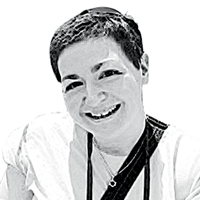Take Five
Groundbreaking for the Rockwell Integrated Sciences Center took place in May. We chat with alumni who majored in disciplines that will collaborate in the new building.
Dr. JON PERLMAN ’69
 Plastic surgeon; performed procedures for ABC TV’s Extreme Makeover
Plastic surgeon; performed procedures for ABC TV’s Extreme Makeover
Major: Biology
How did an integrated education prepare you for your career?
My interest in classical music first arose at Lafayette, as did my knowledge and understanding of religion, psychology, and sociology. These and other liberal arts subjects contributed to my depth as a human being as well as my awareness and understanding of geopolitical and human issues. This has contributed to my identifying as a “people person” with a trustworthy and caring bedside manner appreciated by my patients.
Why this career?
Plastic surgery has permitted me to save lives (burn injuries), repair deformity (industrial hand injuries, trauma, etc.), and improve my patients’ self-esteem and confidence.
How do colleagues from different disciplines impact your work?
There are multiple specialties and disciplines that contribute to the fund of knowledge in plastic surgery. We share information and experience, making us all more effective providers and caregivers for our patients.
SIOBHAN PATTWELL ’06
 Postdoctoral fellow, Fred Hutchinson Cancer Research Center
Postdoctoral fellow, Fred Hutchinson Cancer Research Center
Major: Neuroscience
How did an integrated education prepare you for your career?
Without exposure to subjects like economics, foreign language, and art history, I would not have as great of an appreciation for the world around me and could have fallen down a rabbit hole and become the stereotypical “mad scientist” who never sees beyond the walls of the lab.
Why this career?
I never had even the most remote dreams or plans to be a scientist. I switched my major several times before settling on a combination of Spanish and neuroscience with a pre-med track. I landed a spot in a London summer abroad program that focused on health care systems between the U.S. and U.K. To say this trip was an eye-opener for me would be an understatement.
How do colleagues from different disciplines impact your work?
I constantly try to remind myself that the financial, economic, and political decisions behind the work I do are just as important as, if not more than, the incubation period of a particular antibody.
ARIANA GIORGI ’13
 Computational journalist at The Dallas Morning News
Computational journalist at The Dallas Morning News
Major: Mathematics
How did an integrated education prepare you for your career?
I think exposure to all kinds of classes led me to conclude that I didn’t want to restrict myself to an analytical career in mathematics.
Why this career?
After graduation, I wanted to find a career path that would allow me to write creatively and still take advantage of my background in math and science, so I pursued a dual master’s degree in journalism and computer science from Columbia University. I now build data visualizations and interactive graphics for stories, while also getting to use my writing and reporting skills.
How do colleagues from different disciplines impact your work?
Many people I work with have a background strictly in either writing or programming, and I love being able to communicate effectively with all kinds of people.
ROGER ELLIS ’07
 President at M.B. Ellis and Associates, LLC
President at M.B. Ellis and Associates, LLC
Major: Computer science
How did an integrated education at Lafayette prepare you for your career?
The balanced class structure for technical majors allowed me the opportunity to develop a broader set of skills outside being solely computer science and code oriented. This applied well to both my previous role as developer in the financial services industry and my current role as technical program manager at Google.
Why this career?
I have always loved to build. This is what drove me to computer science. It gives me the ability to build at scale. As a technical program manager I get to manage and build multiple programs with a focus on the bigger picture.
How do colleagues from different disciplines impact your work?
I work mostly with highly technical software engineers and research scientists to develop/enhance natural language understanding systems. Every role is critical to the ultimate product build and allows for a well-balanced team.
SARA KRIESEL ’07
 Environmental scientist with Tetra Tech
Environmental scientist with Tetra Tech
Major: Environmental science
How did an integrated education at Lafayette prepare you for your career?
By its very nature, my study of wetlands would not exist without the integration of geology, biology, and chemistry. Having had the opportunity to take each of these subjects before I even knew what career path I would follow was essential.
Why this career?
My job is to assist my clients in navigating federal, state, and local permitting processes to ensure mutually beneficial projects are developed. In doing so, I get to educate clients, the public, and even colleagues about the importance of wetlands and assist clients in producing the best project possible while being environmentally responsible and mitigating impacts.
How do colleagues from different disciplines impact your work?
Interdisciplinary thinking is essential to my work. Every day is spent communicating with engineers, geographic information system specialists, and other scientists.